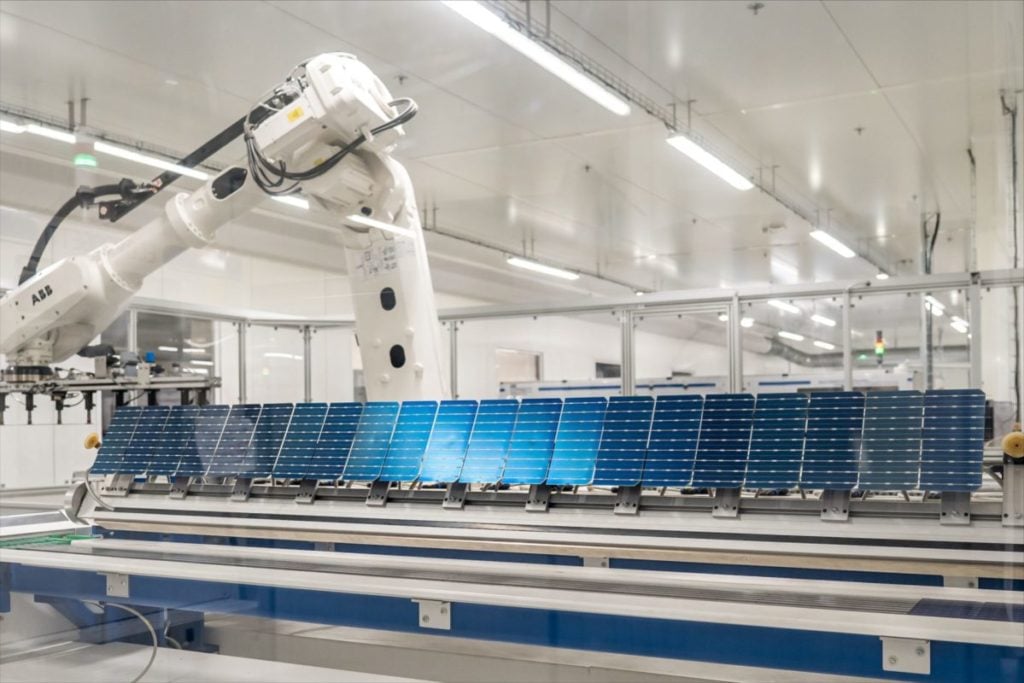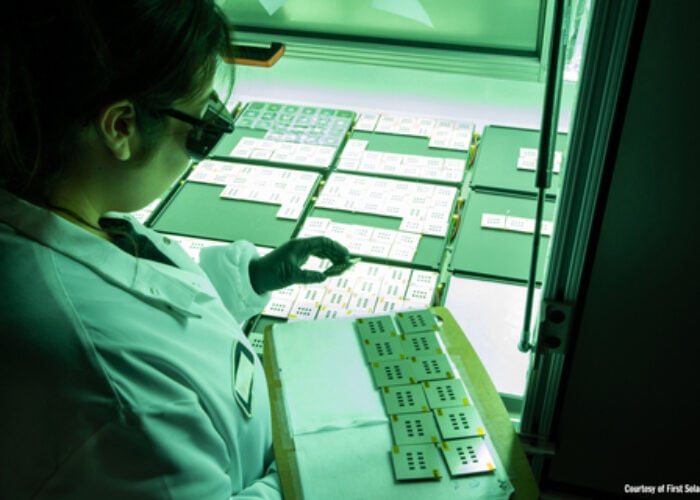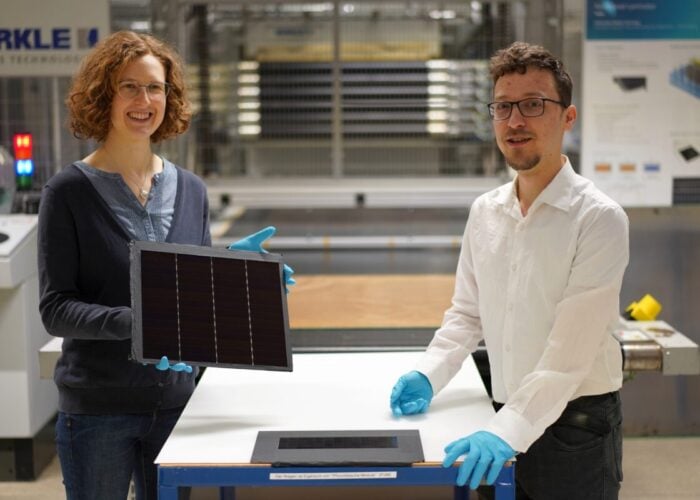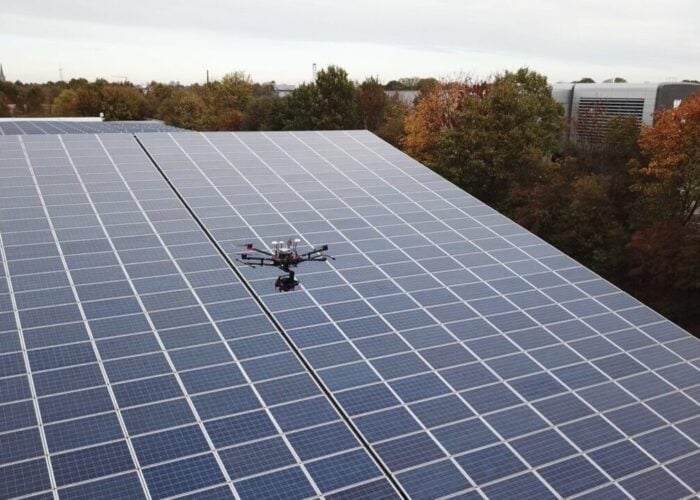
The European Solar Manufacturing Council (ESMC) has reiterated its calls for emergency measures to support the continent’s PV manufacturing industry amid concerns about the collapse of the sector.
Building on its initial pronouncement in September 2023 that called for protective measures against “unsustainably low-priced PV modules” from Chinese producers, the ESMC’s most recent press release doubles down:
Try Premium for just $1
- Full premium access for the first month at only $1
- Converts to an annual rate after 30 days unless cancelled
- Cancel anytime during the trial period
Premium Benefits
- Expert industry analysis and interviews
- Digital access to PV Tech Power journal
- Exclusive event discounts
Or get the full Premium subscription right away
Or continue reading this article for free
“There is only one solution ― we need robust emergency measures that are powerful and effective, bridging the period until legislative incentives, such as the Net-Zero Industry Act, take effect and can at least partly level the playing field.”
The statement came on the same day that European solar manufacturing stalwart Meyer Burger announced plans to abandon its module assembly plant in Germany because of the lack of support afforded to manufacturers in Europe. This follows the exit – within the last four months – of both REC Group from its polysilicon production in Norway and compatriot solar ingot producer NorSun in its decision to halt production and lay off employees.
And “most other European PV manufacturers are having similar discussions behind closed doors”, the ESMC claims.
According to the ESMC, European manufacturers are competing against “heavily subsidised foreign PV module manufacturing” that is uncompetitively low-priced and “creates an uneven playing field”.
This price dumping and the ensuing closures and operational halts of the last few months could be the beginning of a complete collapse in the industry, the ESMC warns, unless emergency action is taken immediately.
It points to the EU’s benchmark of producing 40% of its necessary net zero technologies by 2030 and says that: “If nothing is done now, there will be no industry to count on by 2030. With that, (Chinese president) Xi Jinping’s strategic target to control the PV supply chain would have been achieved, and China’s aggressive industry support strategy would have paid off.”
Chinese solar manufacturers overwhelmingly dominate the international market and have benefitted from government subsidies for years. These operations have also been largely responsible for the widespread availability and low cost of solar PV.
“Losing nearly all European PV module producers right now would have irreversible negative consequences for the entire EU PV manufacturing industry,” said Žygimantas Vaičiūnas, ESMC policy director, in the statement.
He continued: “The European Commission in 2023 adopted Temporary Crisis and Transition Framework (TCTF) and several member states already planned REPowerEU financing for the PV manufacturing industry in the EU, while the Net-Zero Industry Act (NZIA) and Forced Labour Regulation are in the legislative pipeline.
“All these incentives will be useless in case the emergency measures would not be taken by the middle of February at the latest.”
This mid-February date was also alluded to by Meyer Burger in its German closure announcement; it said that “a final decision would have to be made” by late February. The manufacturer is in the process of equipping its new module assembly plant in Arizona, US, where it is supported with tax credits under the US$360 billion-plus Inflation Reduction Act (IRA).
In October a draft regulation calling for an EU-wide ban on products made with forced labour (which would doubtless affect solar modules) was accepted by the EU Internal Market and International Trade committees and in November the EU passed the NZIA. But these legislations will take months or years to come into force, time that the ESMC says Europe’s solar manufacturers don’t have.






